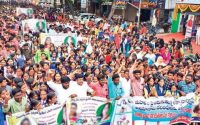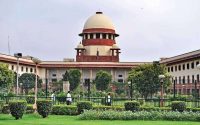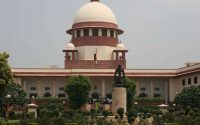$100 Website Offer
Get your personal website + domain for just $100.
Limited Time Offer!
Claim Your Website NowSupreme Court order: special court to try cases ‘against’ legislators
Source:-https://indianexpress.com
The Delhi Additional Chief Metropolitan Magistrate Court’s decision to seek higher judicial opinion on whether it has jurisdiction to hear the defamation suit by former Union minister M J Akbar against journalist Priya Ramani cites an order under which the court was set up in 2018 to try pending criminal cases or offences “against” sitting and former legislators following a Supreme Court order.
Hearing a 2016 petition filed by advocate Ashwini Kumar Upadhyay, with the larger objective of checking criminalisation of politics, the top court had in 2017 given the go-ahead for setting up 12 special courts to try “criminal cases/offences involving political persons” that are pending.
The court also used the expression “elected representatives” in its various orders.
The December 14, 2017 order by a bench of Justices Ranjan Gogoi (he retired as CJI in November 2019) and Navin Sinha, which approved the government scheme to set up these courts, said that once the special courts are set up, “the High Court(s), acting through the various trial courts, will trace out from the case records the particular case(s) pending in files of the respective judicial officers under the jurisdiction of the High Court(s) which are required to be dealt with by the special courts under the scheme”.
Thereafter, the court said, these cases should be transferred to “such special courts(s) for adjudication”.
On August 21, 2018, the SC was informed that two special courts — one sessions court and one magisterial court — have been set up in Delhi. The top court subsequently asked the Registrar General of Delhi High Court to “file an affidavit indicating further details in this regard, including number of cases that have been transferred to the…two courts, and whether any further cases are in the process of transfer”.
The nature of cases being considered by the special courts is also reflected in SC’s September 16, 2020 order, which says that “this matter of paramount public importance pertaining to inordinately delayed inquiries/investigation and/or criminal trials, pending against legislators under various enactments, first came up for hearing on 14.09.2016, when notice was issued”.
In his plea, Upadhyay had sought a direction to the Centre “to provide adequate infrastructure to setup special courts to decide criminal cases related to people’s representatives, public servants and members of judiciary within one year, and to debar the convicted persons from Legislature, Executive and Judiciary for life uniformly in spirit of Article 14 read with Article 15 and 16 of the Constitution”.
He recently moved the court seeking permission to suitably modify some of the prayers.



